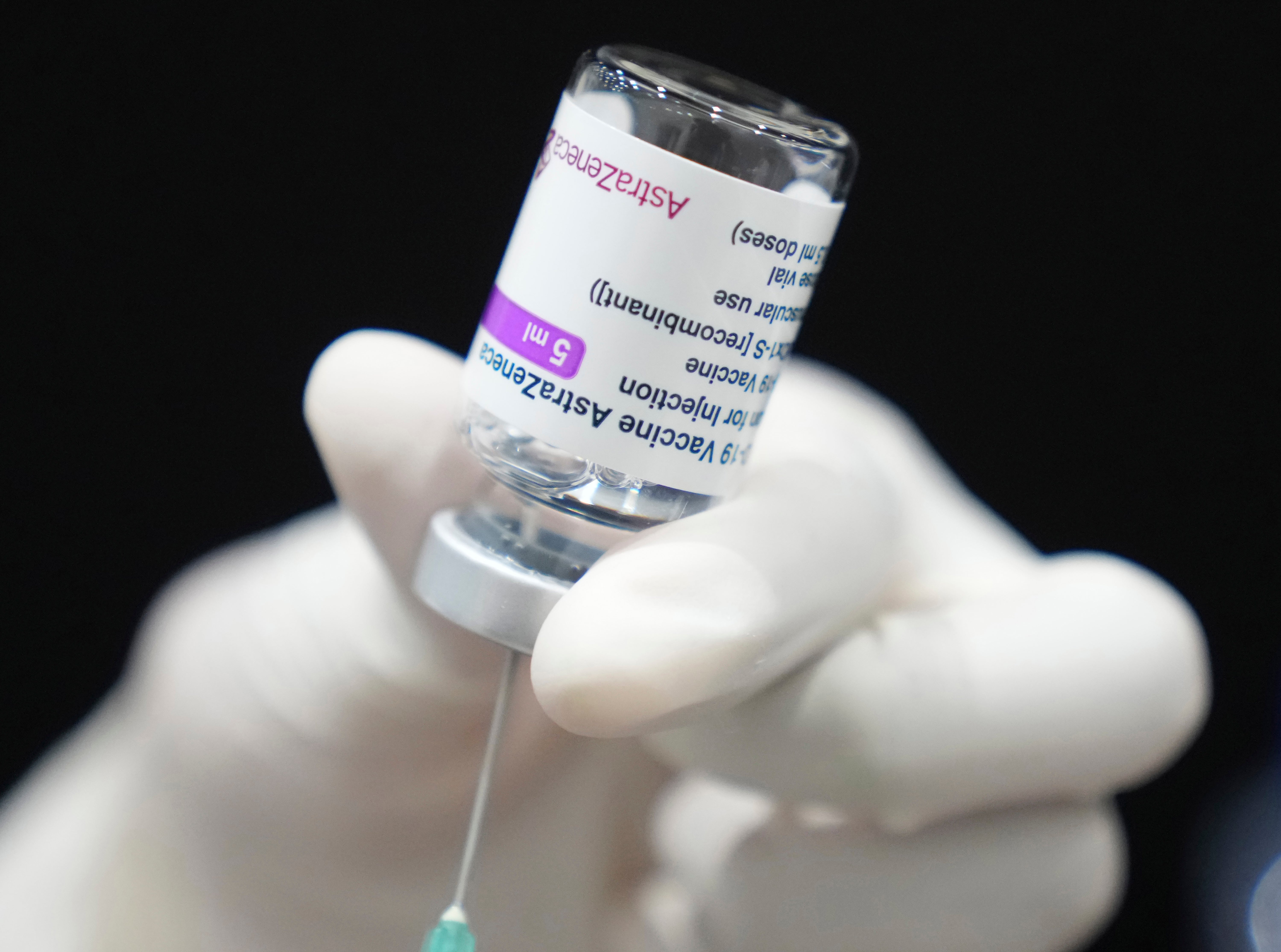Sinovac-vaccinated Thai health workers to receive booster
Medical workers in Thailand who have received two doses of China's Sinovac coronavirus vaccine will be given a booster shot of AstraZeneca vaccine

Your support helps us to tell the story
From reproductive rights to climate change to Big Tech, The Independent is on the ground when the story is developing. Whether it's investigating the financials of Elon Musk's pro-Trump PAC or producing our latest documentary, 'The A Word', which shines a light on the American women fighting for reproductive rights, we know how important it is to parse out the facts from the messaging.
At such a critical moment in US history, we need reporters on the ground. Your donation allows us to keep sending journalists to speak to both sides of the story.
The Independent is trusted by Americans across the entire political spectrum. And unlike many other quality news outlets, we choose not to lock Americans out of our reporting and analysis with paywalls. We believe quality journalism should be available to everyone, paid for by those who can afford it.
Your support makes all the difference.A nighttime curfew and other new coronavirus restrictions began Monday in Thailan ’s capital and several other provinces, as health officials announced that medical workers will given booster shots of AstraZeneca vaccine after already receiving two doses of China s Sinovac vaccine.
Thailand is battling rising COVID-19 cases and deaths since April worsened by the spread of the more contagious delta variant that was first identified in India.
Thailand reported 8,656 new cases and 80 deaths on Monday, bringing its total since the pandemic began last year to 345,027 confirmed cases and 2,791 deaths. More than 90% of the cases and 95% of the deaths have occurred since early April.
Most cases are in Bangkok and nearby provinces and in the country's four southernmost provinces. The sharp rise in cases has caused a severe shortage of hospital beds for COVID-19 patients, prompting the authorities to allow patients to isolate at home and in community centers.
The head of the Thai Red Cross Emerging Infectious Diseases Health Science Center, Dr. Thiravat Hemachudha, said last week that a study he helped conduct found that Sinovac was less effective at fighting the delta variant, and that a booster dose of AstraZeneca would boost its efficacy, while two doses of AstraZeneca instead was even better.
The National Committee on Communicable Diseases agreed Monday to give booster doses of AstraZeneca to front-line medical personnel who earlier received two doses of Sinovac vaccine. They made the decision after a nurse who received two doses of Sinovac in May died Saturday after contracting COVID-19. Another health worker is hospitalized in critical condition.
The Health Ministry announced Sunday that 618 of 677,348 health workers who have received two doses of Sinovac have since tested positive for COVID-19.
Other Thais who have received only one dose of Sinovac will be able to get AstraZeneca for their second dose, Health Minister Anutin Charnvirakul said.
The country has administered around 12.57 million vaccine doses, with 9.3 million people, just over 13% of the population, receiving at least one dose. The government has targeted administering 100 million doses to 50 million people by the end of this year.
Thailand produces AstraZeneca locally but not enough to meet demand, and will continue importing Sinovac. A donation of 1.05 million doses of AstraZeneca from the Japanese government that arrived Friday will be used in part to provide the booster doses for medical personnel.
Under the new coronavirus measures, shopping centers in the greater Bangkok area will be closed except for supermarkets, banks, pharmacies, takeout food, cellphone sales and repair and vaccination centers, all of which must close by 8 p.m. Restaurants have already been limited to takeout service since June 28. Schools in the region will be closed, with only online learning allowed.
Convenience stores must close from 8 p.m. to 4 a.m., and beauty salons and massage parlors must shut entirely. Public transport will stop running from 9 p.m. to 4 a.m., the same hours as the curfew, and working from home is strongly encouraged.
The measures will be reviewed after two weeks.